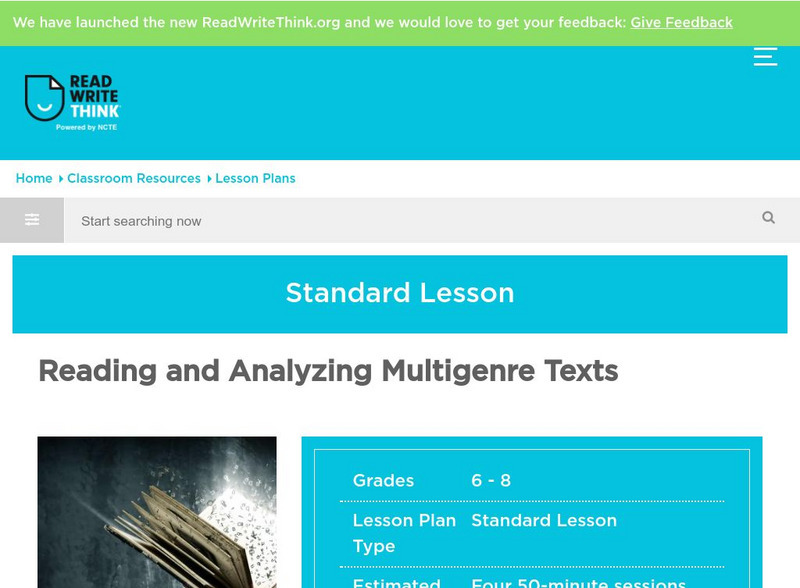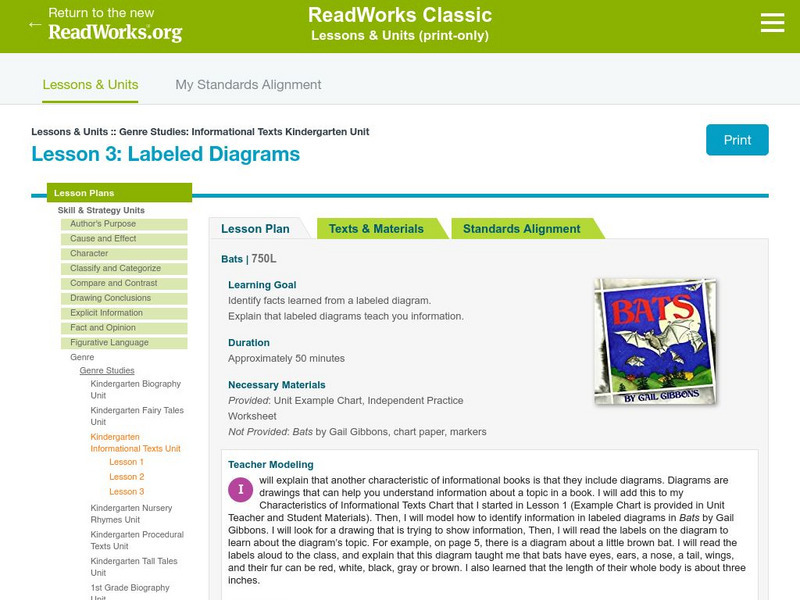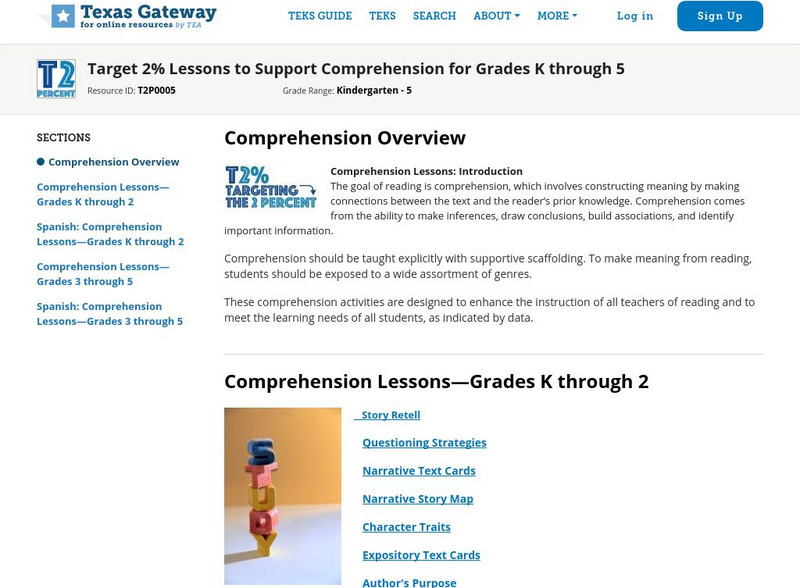ReadWriteThink
Read Write Think: Reading and Analyzing Multigenre Texts
This lesson plan deals with the process of analyzing a variety of literary texts from poetry and letters to diary entries and works of fiction. Included in the lesson plan is an overview, practice, objectives, resources, preparation, and...
ReadWriteThink
Read Write Think: A Genre Study of Letter With the Jolly Postman
In this lesson outline based on The Jolly Postman by Janet and Allan Ahlberg, students learn about parts of a letter, the different genres of mail, and letter attributes by studying the letters included in the book.
ReadWriteThink
Read Write Think: Finding Poetry in Prose Reading and Writing Love Poems
Contains plans for three lessons about love poetry that ask students to review the genre before writing their own. In addition to objectives and standards, this instructional plan contains links to PDF handouts and sites used in the...
ReadWriteThink
Read Write Think: Playing With Genre Through Newspapers and Short Stories
Contains plans for three lessons that ask students to compare narrative writing (short stories) to expository writing (news articles) in order to understand what makes each genre unique. In addition to objectives and standards, this...
ReadWriteThink
Read Write Think: Animal Study From Fiction to Facts
Contains plans for five 50-minute lessons that ask students to compare and research information about animals from fiction and nonfiction texts. In addition to student objectives and standards, these instructional plans contains links to...
ReadWriteThink
Read Write Think: Collaboration of Sites, Sounds: Wikis to Catalog Protest Songs
This lesson makes a connection to popular culture by asking students to research and analyze contemporary and historic protest songs and to catalogue them in a class wiki.
Read Works
Read Works: 1st Grade Lesson: Classifying Texts
[Free Registration/Login Required] A lesson in which students use the books Froggy Goes to School by Jonathan London and Life Cycle of a Frog by Angela Royston to learn to classify texts as fiction or nonfiction. Lesson includes direct...
Read Works
Read Works: Genre Studies: Informational Text Kindergarten Unit: Labeled Diagrams
[Free Registration/Login Required] Lesson uses Bats by Gail Gibbons to teach learners how to identify facts learned from labeled diagrams within an informational text. Ideas for direct teaching, guided practice, and independent practice...
Texas Education Agency
Texas Gateway: Target 2% Lessons to Support Comprehension for Grades K Through 5
Follow links to comprehension lessons for Grades K-2 in both English and Spanish that focus on plot and story elements. Additional links are available in English and Spanish for Grades 3-5 Comprehension lessons on various genres and...
English Club
English Club: Vocabulary: Cloze Games: Arts 5
Choose from a word bank to complete ten sentences about terms related genres found in film and fiction. Hints are available if needed, and a percentage score is displayed once answers are submitted.
English Club
English Club: Vocabulary: Cloze Games: Arts 6
Choose from a word bank to complete ten sentences about terms related to genres found in the arts. Hints are available if needed, and a percentage score is displayed once answers are submitted.
ReadWriteThink
Read Write Think: Question and Answer Books From Genre Study to Report Writing
Contains plans for eight lessons that explore Question and Answer Books and ask students to do research in order to write their own. In addition to objectives and standards, these instructional plans contain links to sites used in the...
Annenberg Foundation
Annenberg Learner: American Passages: Modernist Portraits: Gertrude Stein
Feminist and modernist, Gertrude Stein is featured in this biography for her contributions of many literary genres as well as being a mentor to many twentieth century writers. See "Gertrude Stein Activities" for related materials.
British Library
British Library: 19th Century Non Fiction Texts: Gender, Behaviour & Etiquette
This thematic collection will allow students to read and understand 19th-century non-fiction texts, and support them in identifying key features for a range of genres, audiences, and purposes. Each source is accompanied by original...
AdLit
Ad lit.org: Multiple Texts: Multiple Opportunities for Teaching and Learning
Engaging all students in a themed study or unit is a challenge that teachers can resolve by using materials that match students' independent or instructional reading levels (Robb 1994, 2000). When students face textbooks that are above...
Wessels Living History Farm
Living History Farm: Television During the 1950s and 60s
Read a history of television in the 1950s and 1960s to see how it became such a cultural icon. Find out about the many genres of television that were broadcast during that time.
PBS
Pbs Learning Media: Selected Haiku by Issa
Learn more about the Japanese form of poetry known as haiku. In this video segment from Poetry Everywhere, the poet Robert Hass reads a short collection of amusing, often ironic haiku by Japanese poet Kobayashi Issa. [1:32]
Writing Fix
Writing Fix: Truth Be Told
This lesson plan extends student understanding of the concept of "truisms" and "writing hooks" to introduce writings. Gretchen Bernabei's Reviving the Essay, the book Fox, written by Margaret Wild and Ron Brooks, will be read aloud and...
British Library
British Library: 19th Century Non Fiction Texts: Work & Welfare
This thematic collection will allow students to read and understand 19th-century non-fiction texts, and support them in identifying key features for a range of genres, audiences, and purposes. Each source is accompanied by original...
British Library
British Library: 19th Century Non Fiction Texts: Education
This thematic collection will allow students to read and understand 19th-century non-fiction texts, and support them in identifying key features for a range of genres, audiences, and purposes. Each source is accompanied by original...
British Library
British Library: 19th Century Non Fiction Texts: Crime & Punishment
This thematic collection will allow students to read and understand 19th-century non-fiction texts, and support them in identifying key features for a range of genres, audiences, and purposes. Each source is accompanied by original...














